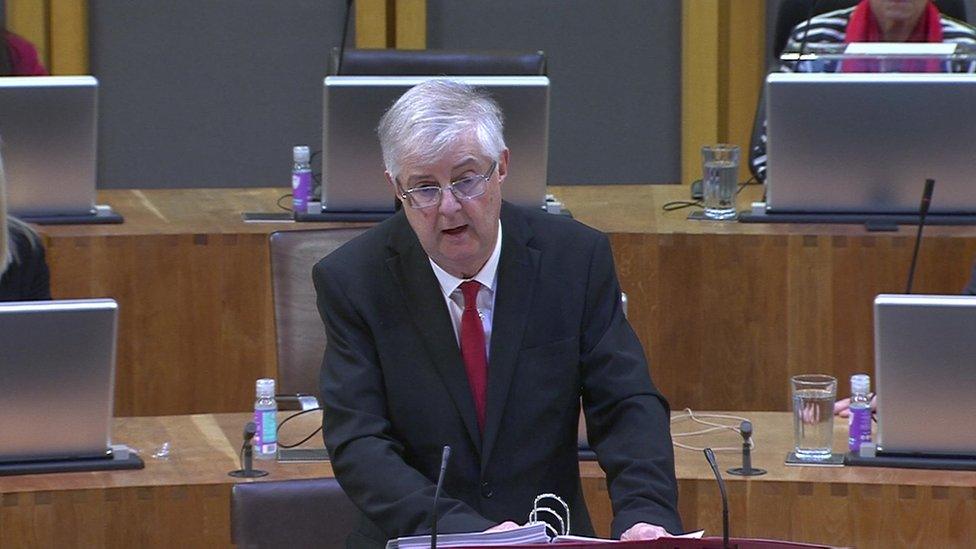Mark Drakeford fears thousands of Welsh job losses from budget cuts
- Published

Mark Drakeford: "We are talking about thousands and thousands of people losing their jobs"
"Thousands and thousands" of jobs could be lost in Wales' public services if UK ministers impose large cuts on the Welsh government budget, First Minister Mark Drakeford has said.
It comes after an economic think tank warned of the need for "big and painful" UK government spending cuts.
The Institute for Fiscal Studies (IFS) said reductions of up to £60bn were required to balance the books.
The UK Treasury has said it would ensure sustainable funding.
Chancellor Kwasi Kwarteng is due to announce his economic plan at the end of October.
In a new report, the IFS predicts that with a weaker economy and tax cuts promised by the chancellor, there will be a large shortfall in UK government revenue.
It calculates the UK government would have to spend £60bn a year less by 2026-27.
Measures which could help to achieve those savings outlined by the think tank include cutting departmental budgets, except for health and defence, by 15%.
The Welsh government has some tax raising powers, external but the vast majority of its funding comes from UK ministers.
Labour's Mr Drakeford said: "A 15% cut to the Welsh government budget will be something unheard of in the deepest days of austerity.
"If we face cuts on that scale we are talking about thousands and thousands of people losing their jobs in public services across Wales, with all the impact that that will have on the lives of those people who rely on those services."
He said the UK government "must change course".
Mr Kwarteng and Prime Minister Liz Truss have argued focusing on measures to promote growth will help plug the shortfall between their government's income and outgoings.

Kwasi Kwarteng will set out how he will fund tax cuts and reduce debt at the end of the month
The chancellor has promised to set out further details of his economic strategy on 31 October, three weeks earlier than originally planned, alongside a full forecast from the official Office for Budget Responsibility (OBR).
That change of timetable came after the strategy announced in last month's mini-budget sparked alarm among investors.
Responding to the IFS report, a Treasury spokesperson said: "Through tax cuts and ambitious supply-side reforms, our growth plan will drive sustainable long-term growth, which will lead to higher wages, greater opportunities and sustainable funding for public services".
"The government is committed to fiscal responsibility and getting debt falling as a share of GDP in the medium term," they added.

FIGHT FOR YOUR RIGHTS: The Welsh consumer show fighting for YOUR rights
